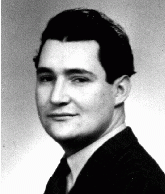
Heinz Rosenberg
Born: September 15, 1921
Goettingen, Germany
Heinz was the youngest of three children born to a Jewish family in the German university city of Goettingen. His father owned a linen factory that had been in the family since it was founded by Heinz's grandfather. Goettingen had a small Jewish population, and only one synagogue. Heinz went to public school in the city.
1933-39: In 1933 the Nazis took power in Germany. A year later Heinz's family's factory was seized. Three SA men came to their house. An officer set a gun on the table and calmly informed his father that if they did not leave in a week, "You and your furniture will be thrown out the window." Within a month they moved to Hamburg. Nazi edicts prohibited Heinz from going to school, so he worked several jobs. He was also recruited by the Nazis as a forced laborer.
1940-44: In 1941 Heinz was forced with his family to sign a paper stating that, as a Jew, he was being deported as an enemy of the state. They were told they'd be going to work in the east. Many felt that it wouldn't be so bad, and they'd return home soon. They boarded a train and after four days arrived in Minsk, Soviet Union. Leaving the train, Heinz saw guards throwing loaves of bread into open cattle cars full of Soviet POWs. As the starving men fought over the food, German guards shot at them. Heinz then realized they were never going to return.
Heinz was in the Minsk ghetto until 1943. Over the next two years he was sent to 11 Nazi camps. He was one of the few survivors of the tens of thousands in the Minsk ghetto.